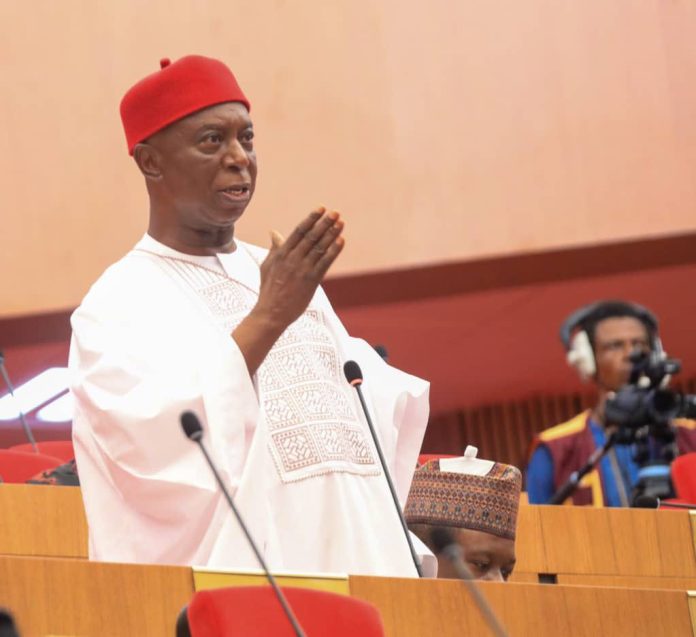BY AUSTIN OYIBODE
In a bold move to reshape Nigeria’s educational landscape, Senator Ned Nwoko, representing Delta North Senatorial District, has taken a significant step toward advancing technical and vocational education.
His proposed bill to upgrade the Federal College of Education (Technical), Asaba, into the Federal University of Technology, Asaba, has captured widespread attention, promising to fill a critical gap in the nation’s education system.
A Vision for Technological Advancement
For years, the Federal College of Education (Technical), Asaba, has served Delta State and beyond as a center for teacher training and technical education.
However, with the rapid shifts in global economies and the ever-growing demand for skilled labor in science, technology, engineering, and mathematics (STEM), there is a consensus that the institution’s potential could be better realized through a broader and more advanced academic mandate.
Senator Nwoko’s bill seeks to bridge this gap by transforming the college into a full-fledged Federal University of Technology, capable of offering cutting-edge programs in fields such as artificial intelligence, robotics, renewable energy, and computer science.
The Rationale Behind the Bill
The driving force behind Senator Nwoko’s initiative is his commitment to fostering technological development and improving the quality of education in Nigeria.
He has voiced concerns that the current state of technical and vocational education falls short in preparing students for the demands of a fast-evolving, technology-driven world.
In many regions, there’s a noticeable shortage of graduates with the technical expertise necessary to drive innovation and economic growth.
The transformation of the Federal College of Education, Asaba, into a university would address this by offering specialized programs tailored to meet the needs of modern industries.
“By upgrading the institution, we are not only creating opportunities for our youths but also positioning Nigeria to be a major player in the global technological space,” Senator Nwoko explained.
Economic and Educational Benefits
The proposed Federal University of Technology, Asaba, is expected to bring a range of benefits, both educational and economic.
Students would gain access to world-class technological education that’s in high demand both locally and internationally.
This initiative aligns with Nigeria’s goal of diversifying its economy by investing in human capital, especially in emerging sectors like information technology and renewable energy.
Additionally, the transformation would create thousands of jobs—lecturers, researchers, administrative staff, stimulating the local economy. The influx of students and professionals would boost demand for goods and services in Asaba and its surrounding areas, creating a ripple effect of economic growth.
The new university would also be a hub for research and innovation. By fostering a culture of technological breakthroughs, it could contribute to the development of new solutions with national and global impact.
Strong Political and Social Support
Senator Nwoko’s bill has received widespread support from politicians, educators, and students, who see the transformation of the college as a step toward enhancing Delta State’s educational infrastructure and driving the region’s development.
The initiative aligns with the Nigerian government’s broader goals of improving education and promoting technological advancement.
However, bringing this vision to life will require substantial funding and political will. Senator Nwoko, a passionate advocate for increased investment in education, is confident that this project will serve as a model for other educational transformations across Nigeria.
A Bold Step for Nigeria’s Future
In championing the transformation of the Federal College of Education, Asaba, into the Federal University of Technology, Senator Ned Nwoko is taking a forward-thinking approach to addressing Nigeria’s educational challenges.
The new university would not only prepare students for the demands of the 21st-century economy but also play a crucial role in fostering innovation, creating jobs, and contributing to the country’s long-term prosperity.
With strong government backing and public support, this bill has the potential to bring lasting positive change, positioning Nigeria as a global leader in technological education and innovation.
Senator Nwoko’s vision, if realized, could mark the beginning of a new era for Nigerian education, one that empowers the next generation to build a more technologically advanced and prosperous nation.















